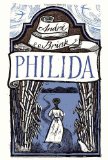Summary | Excerpt | Reading Guide | Reviews | Beyond the book | Read-Alikes | Genres & Themes | Author Bio

aka: The Book of Negroes
by Lawrence HillThe weight of one's name and who may
speak it can not, perhaps, be fully understood in
this present era of digital communication and social
informality. But the proper name carried much
significance in eighteenth century Europe: forms of
address and etiquette of the name's use were part of
a careful code of respect and hierarchy. Similarly,
in Bayo, Africa, childhood home of Aminata Diallo,
main character of Someone Knows My Name,
one's name, rank and tribe carried great meaning.
Such distinctions - individual heritage, familial
spiritual beliefs, societal roles - begin to erode,
however, the moment Aminata and several other
villagers are stolen from their homes and families
by slave traders and locked in naked, marching rows
toward the sea. Thus, amidst horrible physical
suffering, Aminata's interior battle begins: a
constant tension between retaining the dignity of
her own name and personhood and adjusting, for
survival's sake, to the whims and mores of other
lands. Through this weaving of opposites, author
Lawrence Hill accomplishes a writing feat of
admirable subtlety: illustrating the homogenizing
influence of mutual suffering inside the theme of
the distinguishing power of a name.
Someone Knows My Name is the story of a girl
who becomes a woman, a wife, a mother, and a leader
– all while under the ownership of white men. It is
a novel that offers its readers not only a mesmeric
heroine and expertly paced plot, but also a
significant survey of the complexities of the pre-
and post-American Revolution African slave trade. In
this tale, the wrongs of human slavery spread across
continents and people groups, perpetuated even by
neighboring African villages and colonists who
question the rightness of the practice. Progress,
whether it be Aminata's or the British
Abolitionists,' often depends on unholy alliances.
As a result, the novel is a literary reminder of the
pain caused by a culture's moral failures and the
precarious fight to correct them.
Turning the pages of Hill's book is effortless in
one sense and very difficult in another. Protagonist
Aminata Diallo's desire for freedom is unquenchable,
her drive inspiring and superhuman. The losses she
experiences, however, are just as potent as her
will. Brief joys of love and family are suffocated
by mourning time and time again. Some scenes
approach the threshold of heartache plausible for
one soul to bear, requiring Hill to find or create a
new purpose for Aminata's fight for life and freedom
to continue. Most often, her rare literacy and gift
for languages is her saving grace, offering a
welcome nod to the power of reading and writing to
change a life – or the direction of an entire
nation.
Someone Knows My Name was originally
published as The Book of Negroes in Canada,
where it received wide praise. The pre and
post-publication media in the USA were in general
agreement, as were BookBrowse's members who voted it
one of the top four books of 2007.
As always, each reader must judge the book's merits.
This is a book that is definitely worth being given
that chance. Despite the book's almost 500 pages,
Hill has crafted a superbly focused narrative and
has successfully blended the unforgettable story of
an indomitable woman with little known, but
important, historical events from Africa, America,
Canada and England.
Read what BookBrowse members have to say about this
book!
About the Author: Lawrence Hill is the author
of the novels
Any Known Blood (1999), Some Great Thing
(1992) and The Book of Negroes (2007) (Someone
Knows My Name in USA) and the non-fiction works
Black Berry, Sweet Juice: On Being Black and
White in Canada (2001); Women of Vision: The
Story of the Canadian Women's Association (1996)
and Trials and Triumphs: The Story of
African-Canadians (1993). He also co-authored,
with Joshua Key, The Deserter's Tale: The Story
of an Ordinary Soldier Who Walked Away from the War
in Iraq (2007), about former American soldier,
Joshua Key's, experiences in Iraq that led him to
desert after seven months and seek asylum in Canada.
Born in Toronto in 1957, Hill is the son of a black
man and a white woman, American-born civil rights
activists Daniel and Donna Hill. Hill came upon the
idea for The Book of Negroes in a book he
borrowed from his parents about 20 years ago. The
Black Loyalists, written by historian James
Walker and published in 1980, tells how black
Americans settled in Nova Scotia after serving the
British in the Revolutionary War.
He lives in Burlington, Ontario with his wife and
five children.
![]() This review was originally published in The BookBrowse Review in November 2007, and has been updated for the
November 2008 edition.
Click here to go to this issue.
This review was originally published in The BookBrowse Review in November 2007, and has been updated for the
November 2008 edition.
Click here to go to this issue.

If you liked Someone Knows My Name, try these:

by Martine Bailey
Published 2015
Inspired by eighteenth-century household books of recipes and set at the time of the invention of the first restaurants, An Appetite for Violets is a literary feast for lovers of historical fiction.

by André Brink
Published 2013
In Philida, longlisted for the Man Booker Prize, André Brink—"one of South Africa's greatest novelists" (The Telegraph)—gives us his most powerful novel yet; the truly unforgettable story of a female slave, and her fierce determination to survive and to be free.
Fanaticism consists in redoubling your effort when you have forgotten your aim
Click Here to find out who said this, as well as discovering other famous literary quotes!
Your guide toexceptional books
BookBrowse seeks out and recommends the best in contemporary fiction and nonfiction—books that not only engage and entertain but also deepen our understanding of ourselves and the world around us.